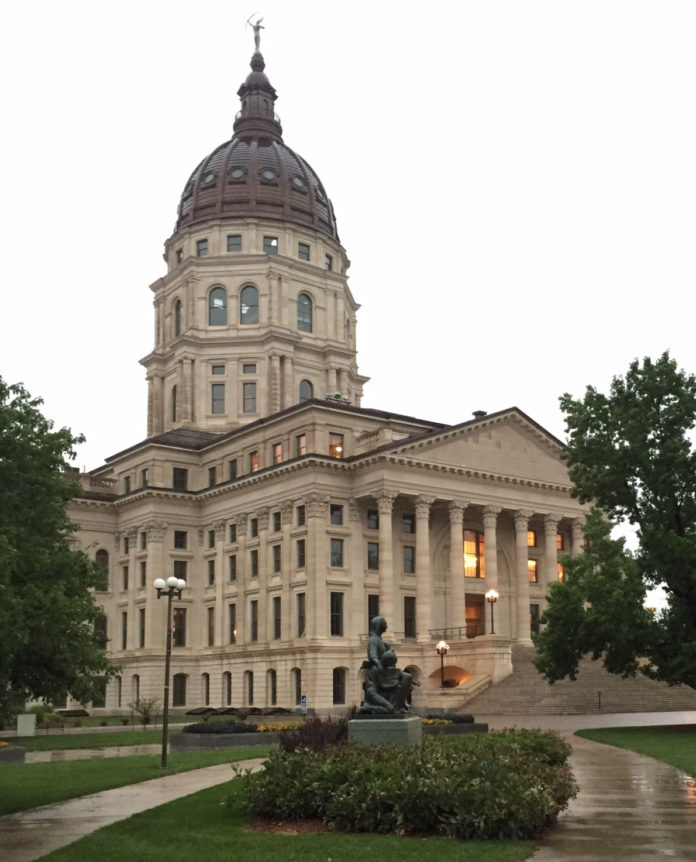A proposal that would establish new reporting requirements about women seeking abortions cleared the Kansas House on Thursday.
The House voted 81-39 to approve a bill that would require abortion clinics to ask women to list one of 11 reasons why they are seeking the procedure.
The bill now goes to the Senate with less than a veto-proof majority although three Republicans didn’t vote, including state Rep. Owen Donohoe of Shawnee who is resigning but is expected to be replaced by a conservative.
The bill was passed after a passionate debate on the House floor Wednesday over a bill that opponents said singles out women seeking intrusive information while supporters said it gathers important information about their health needs.
The proposed law requires women to be asked – they don’t have to answer – whether having a baby would interfere with their education, employment or career.
Other questions include whether the woman’s husband or partner wants the patient to have an abortion and whether the husband or partner is abusive.
They also would be asked whether the pregnancy is the result of rape or incest and whether the patient had enough or too many children.
Supporters of the bill said it was necessary because it would help lawmakers
find ways to support pregnant women and understand how abortion is affecting them.
They said the data is needed to develop policies and programs that address the needs of pregnant women in Kansas.
They said the questions weren’t outside the type of question that could be asked during a routine doctor’s visit.
As a physician, Republican state Rep. Ron Bryce of Coffeyville said he’s been required to ask patients about sexual activity, drug use, tobacco use, contraception and whether they feel safe at home or have been victims of abuse.
“There is absolutely nothing in this bill that is different or intrusive compared to the status quo,” Bryce said.
“These questions do serve a purpose. They provide data on the underlying factors that drive young women into these difficult situations.
“These data help us as legislators address the difficulties and help us to focus resources toward the underlying factors rather than just assumptions.”
Opponents of the bill said it singled out women for intrusive questions that aren’t asked of men seeking health care.
They say the bill is fueled by an “anti-abortion stigma” and a desire to “harass, intimidate, and shame health care providers and patients in Kansas.”
Planned Parenthood said the bill interferes with the provider-patient relationship and presents “serious and problematic barriers to open and truthful conversations about care.”
Opponents said the bill runs counter to the August 2022 election where voters overwhelmingly rejected a constitutional amendment that would have removed the right to an abortion from the state constitution.
Democratic lawmakers offered up amendments to the bill requiring men to be asked why they had a vasectomy or why they were seeking erectile dysfunction treatment.
“There is a continued effort on the part of this body to create a subsection of subKansans – that means people who are able to conceive and carry a child,” said Democratic state Rep. Stephanie Clayton of Overland Park.
“I believe in a universal and fair treatment, and I do not like to see this type of legislation that tends to subject one group to the whims of another,” Clayton said. “In Kansas, we are fair. In Kansas, we are universal. Men are adults with rights. So are women.”
Republican state Rep. Brenda Landwehr, chair of the House health committee, said the bill does not require women to answer the questions they are asked.
She pointed to the Guttmacher Institute, an abortion-rights think tank, to make the case for why data collection could be helpful.
Landwehr quoted from Guttmacher’s website about how understanding why women seek an abortion could help shape public-policy decisions about abortion and pregnancy.
“I’ve heard that we don’t need additional data, but yet Guttmacher and a few others think that we do,” Landwehr said.
She said the bill was not introduced as part of an effort to harass or intimidate any abortion providers. She said the bill was not an attempt to ban abortion.
“Kansans spoke when Value Them Both was voted down,” she said. “I respected that vote. Just look at what bills are parked in my committee.”
House Minority Leader Vic Miller quizzed Landwehr on the floor about whether she agreed that the data was vital to ensuring that women were getting the assistance they need.
He asked if public health programs would suffer without accurate and timely data.
Landwehr didn’t respond to Miller’s questions.
Miller highlighted questions in the bill that he thought were invasive, including whether the woman seeking the abortion was a victim of rape or incest and whether the husband or partner wanted the abortion.
“I can’t imagine what it must feel like if someone was asked that question to which I find totally unnecessary to satisfy questions of public health,” he said.
“If we care so much about the women that are looking to have an abortion that we ask them to address all these questions, why are we not asking them if it’s something they want as we’re doing about their partner of their husbands?” he said.
The bill also would require the report that the state issues each year documenting the number of abortions performed in Kansas to now come out twice a year.
The bill requires the report to be issued within 30 days of the reporting period, an attempt to address frustration that a report that was once issued in March and April every year has been coming out later and later.
The bill also requires that information obtained by the state under the bill be confidential and not be disclosed in a manner that would reveal anyone’s identity who’s licensed to practice medicine and submits the report to the state.
















